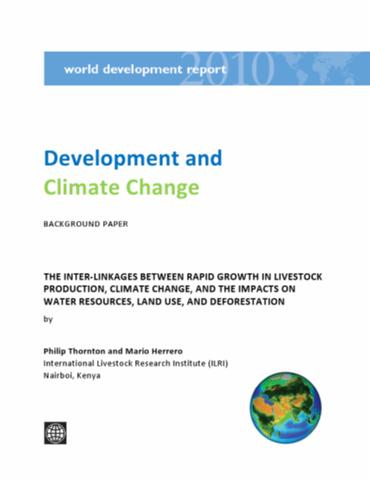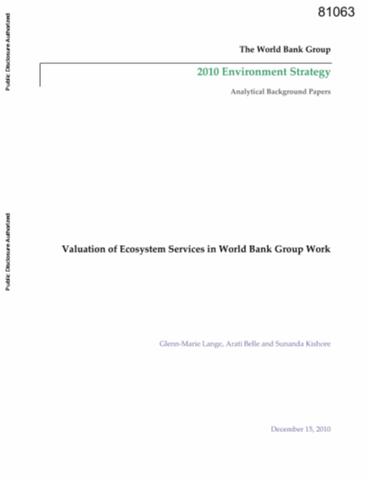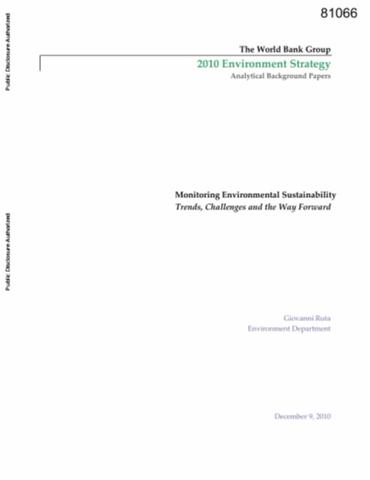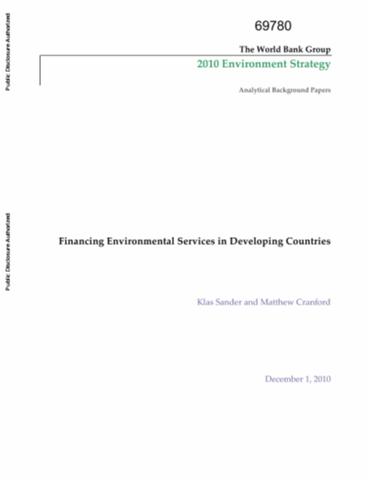The World Bank is a vital source of financial and technical assistance to developing countries around the world. We are not a bank in the ordinary sense but a unique partnership to reduce poverty and support development. The World Bank Group has two ambitious goals: End extreme poverty within a generation and boost shared prosperity.
- To end extreme poverty, the Bank's goal is to decrease the percentage of people living on less than $1.25 a day to no more than 3% by 2030.
- To promote shared prosperity, the goal is to promote income growth of the bottom 40% of the population in each country.
The World Bank Group comprises five institutions managed by their member countries.
The World Bank Group and Land: Working to protect the rights of existing land users and to help secure benefits for smallholder farmers
The World Bank (IBRD and IDA) interacts primarily with governments to increase agricultural productivity, strengthen land tenure policies and improve land governance. More than 90% of the World Bank’s agriculture portfolio focuses on the productivity and access to markets by small holder farmers. Ten percent of our projects focus on the governance of land tenure.
Similarly, investments by the International Finance Corporation (IFC), the World Bank Group’s private sector arm, including those in larger scale enterprises, overwhelmingly support smallholder farmers through improved access to finance, inputs and markets, and as direct suppliers. IFC invests in environmentally and socially sustainable private enterprises in all parts of the value chain (inputs such as irrigation and fertilizers, primary production, processing, transport and storage, traders, and risk management facilities including weather/crop insurance, warehouse financing, etc
For more information, visit the World Bank Group and land and food security (https://www.worldbank.org/en/topic/agriculture/brief/land-and-food-security1
Resources
Displaying 4641 - 4645 of 4906The Inter-Linkages between Rapid Growth in Livestock Production, Climate Change, and the Impacts on Water Resources, Land Use, and Deforestation
Livestock systems globally are changing rapidly in response to a variety of drivers. Human population growth, rapid urbanization, and growing incomes will lead to substantial increases in the demand for livestock products in the coming decades. Meeting this increased demand may put substantial pressure on a wide range of natural resources such as land and water. Together with climate change and increasing climate variability, these drivers of change add up to a formidable set of development challenges for developed as well as developing countries.
The Vanishing Farms? The Impact of International Migration on Albanian Family Farming
This paper investigates the impact of international migration on technical efficiency, resource allocation and income from agricultural production of family farming in Albania. The results suggest that migration is used by rural households as a pathway out of agriculture: migration is negatively associated with both labour and non-labour input allocation in agriculture, while no significant differences can be detected in terms of farm technical efficiency or agricultural income.
Valuation of Ecosystem Services in World Bank Group Work
In 2005, the Millennium Ecosystem Assessment (MA, 2005) provided the first comprehensive report on global ecosystems, the dependence of human societies on the services provided, current state, and likely future trajectory. The MA identified the failure to value ecosystem services as a major contributing cause. The 2001 environment strategy did not explicitly address environmental valuation, although the focus on poverty and environment implies a need for valuing natural resources and environmental services.
Monitoring Environmental Sustainability
This report presents a concise review of the major environmental and natural resources issues at the global and national level over the coming two decades. The environmental issues reviewed include air pollution and deterioration of air quality, greenhouse gas emissions and climate change, water quality, scarcity and access, land and soil degradation, deforestation and forest degradation, natural disaster, loss of biodiversity and protected areas, and governance and institutions for environmental and natural resource management.
Financing Environmental Services in Developing Countries
Current international financing (primarily ODA) for environmental services in developing countries is very roughly estimated to be upwards of $21 billion annually (not including climate change financing), but additional resources on the order of tens, if not hundreds, of billions of dollars are needed. In 2009, environmental ODA was estimated at $18 billion with a few billion more delivered through philanthropic and market-based financing channels.










